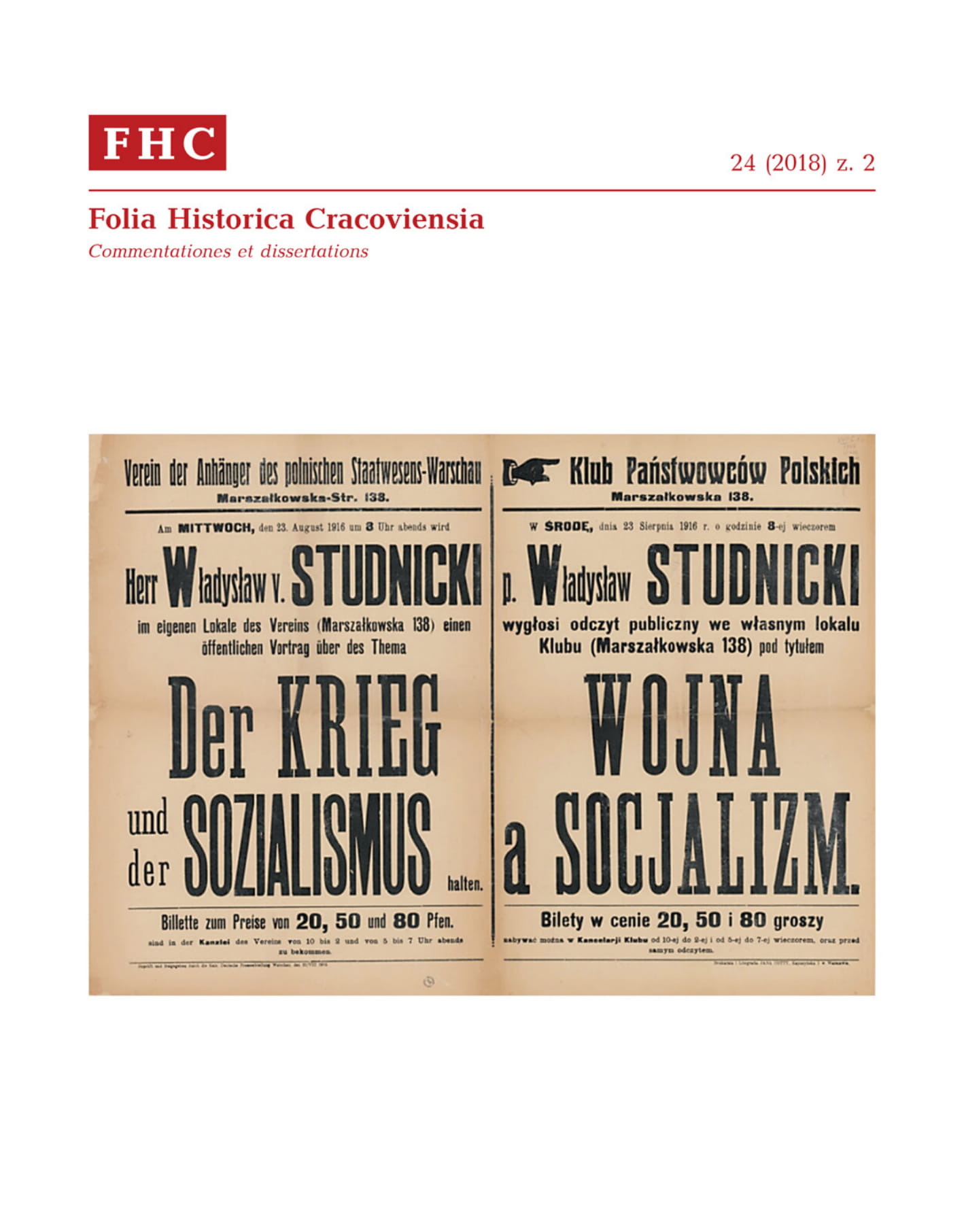Reforma Zakonu Księży Marianów 1909 roku jako przykład „bezkonfliktowej” reformy
DOI:
https://doi.org/10.15633/fhc.3305Słowa kluczowe:
Matulewicz, reforma, Sękowski, stanisławici, Zgromadzenie MarianówAbstrakt
Zgromadzenie Księży Marianów Niepokalanego Poczęcia NMP na początku XX wieku okazało się na grani wymarcia: w Mariampolu (Litwa) pozostał ostatni członek zgromadzenia o. W. Sękowski. Ks. J. Matulewicz zdecydował się na odnowienie Zgromadzenia, jednak z powodu represji ze strony władz carskich to było niemożliwe zrobić jawnie. Dlatego zaszła konieczność radykalnej reformy zgromadzenia.
Autor referatu na podstawie publikowanych dokumentów oraz opracowań, prezentuje przebieg zmian oraz podejmuję próbę odpowiedzi na pytanie, dlaczego te zmiany przeszły bez konfliktów.
Pierwszą przyczyną braku konfliktu jest niewielka grupa osób, zaangażowanych w reformę, następnie – dobre rozumienie konieczności tych zmian przez wszystkich zainteresowanych. Kolejną przyczyną jest współpraca zaangażowanych w reformę na zasadzie wzajemnego szacunku i zrozumienia. Na końcu należy zaznaczyć obecność i zaangażowanie w reformę władzy nadrzędnej – Stolicy Apostolskiej.
Ponadto, zaprezentowana jest i „druga strona medalu”: działanie tzw., „stanisławitów”, czyli kapłanów, którzy uważali, że nie było żadnej reformy, natomiast to właśnie oni są właściwymi marianami. Oni, oraz kilka późniejszych autorów, są przykładem opóźnionego oporu wobec już dokonanej reformy zgromadzenia. Konflikt ten jednak jest już rozstrzygnięty przez kompetentną władzę kościelną.
Bibliografia
Gach P., Zakon marianów w XIX wieku, [w:] Marianie 1673-1973, red. J. Bukowicz, T. Górski, Rzym, 1975, s. 70-94.
Jakimowicz B., Stabilizacja i rozwój zakonu w XVIII wieku, [w:] Marianie 1673-1973, red. J. Bukowicz, T. Górski, Rzym, 1975, s. 39-49.
Kałowski J., Ocena zarzutów przeciwko legalności odnowy Zakonu Marianów, „Prawo Kanoniczne”, 21(1978) nr 3-4, s. 71-95
Krzyżanowski K., Powstanie i rozwój zakonu za życia założyciela, [w:] Marianie 1673-1973, red. J. Bukowicz, T. Górski, Rzym, 1975, s. 17-38.
Marecki J., Stowarzyszenie stanisławitów (1928-1955), „Folia historica cracoviensa”, vol. 9, Kraków, 2003, s. 105-133.
Matulis S., Górski T., Odnowienie marianów, [w:] Marianie 1673-1973, red. J. Bukowicz, T. Górski, Rzym, 1975, s. 97-118.
Matulis S., Marianie za błogosławionego Jerzego Matulaitisa-Matulewicza, Warszawa-Lublin, 2008.
Olszewski D., Kontekst historyczno-religijny odnowienia Zakonu Marianów (XIX/XX w.), [w:] Za Chrystusa i Kościół. Materiały z sympozjum historyczno-teologicznego z okazji 100. rocznicy odnowienia i reformy Zgromadzenia Księży Marianów (1909-2009, Licheń Stary 24-28 maja 2009 r., red. J. Kumala, Licheń Stary, 2010, s. 17-30.
Pobrania
Opublikowane
Numer
Dział
Licencja
Prawa autorskie (c) 2019 Dmitrijs Artjomovs

Praca jest udostępniana na licencji Creative Commons Attribution-NonCommercial-NoDerivatives 3.0 Unported License.
Autorzy publikujący w czasopiśmie udzielają jego wydawcy zgody o następującej treści:
- Autor zachowuje autorskie prawa majątkowe do utworu, a jednocześnie udziela wydawcy czasopisma zgody na jego pierwszą publikację w wersji drukowanej i wersji online na licencji Creative Commons Uznanie autorstwa 4.0 Międzynarodowe oraz zgody na wykonywanie opracowań, w tym przekładów.
- Autor ma możliwość udzielania zgody niewyłącznej na opublikowanie utworu w wersji, która ukazała się w czasopiśmie (np. zamieszczenia go w repozytorium instytucjonalnym lub opublikowania w książce), wraz z informacją o jego pierwszej publikacji w czasopiśmie.
- Autor może umieścić swój utwór online (np. w repozytorium instytucjonalnym lub na swojej stronie internetowej) jeszcze przed zgłoszeniem utworu do czasopisma.

